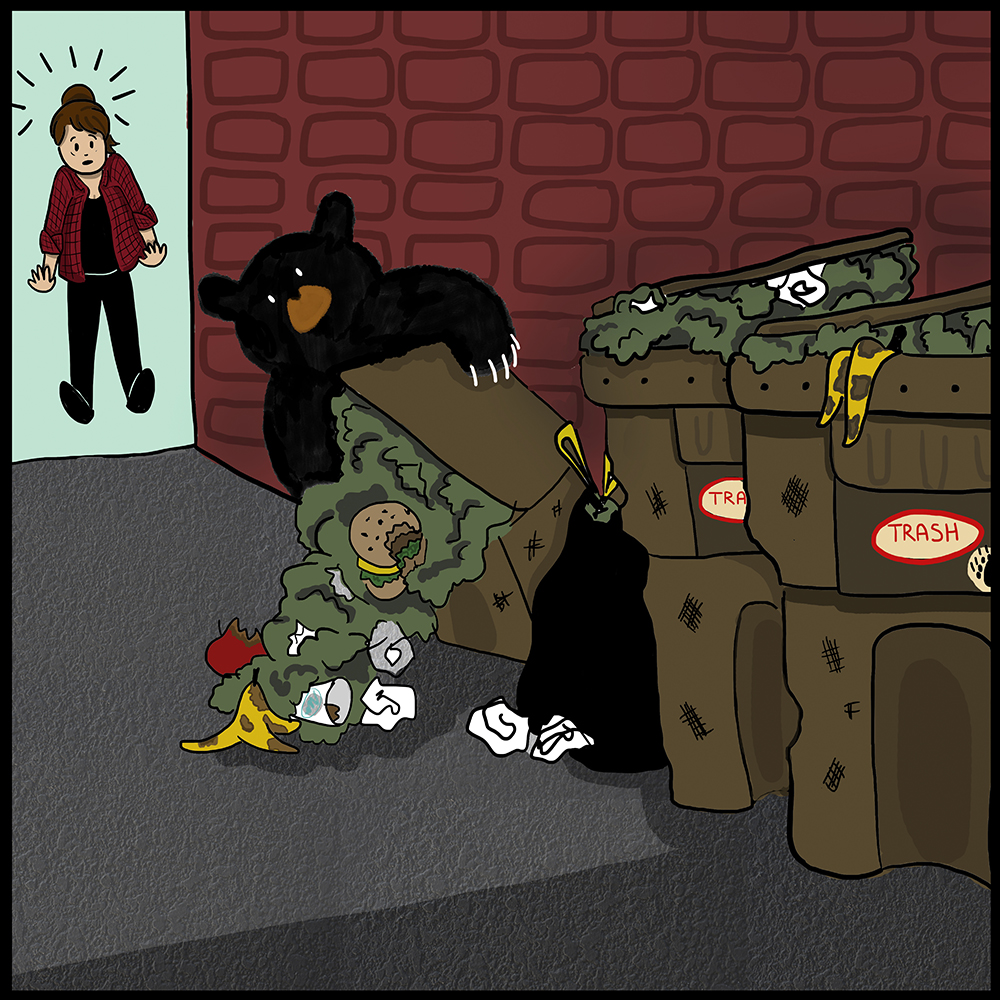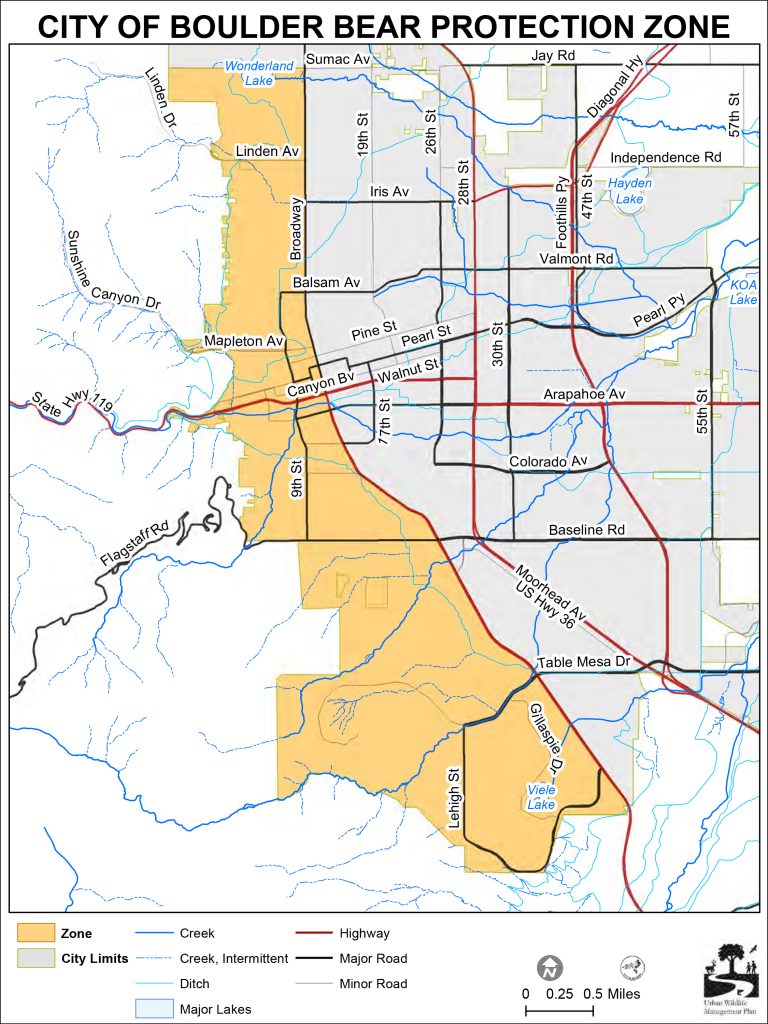Connecting the dots with bears and trash.
2013 was the most lethal year for black bears within Boulder’s city limits, and the community was devastated. Many residents were searching for ways to prevent this from ever happening again. After much investigation between the city of Boulder staff and the newly founded Boulder Bear Coalition, trash was identified as the main attractant that continuously lured bears into town each year.
To demonstrate the extent of Boulder’s trash problem, Brenda Lee, founder of the Boulder Bear Coalition, spent roughly 20 hours per week during the bears’ hyperphagia period (August-November) to monitor west Boulder alleys and document evidence of bears getting into trash. Beyond the fact that bears were getting into trash, she found the alleyways to be extremely unsanitary and sometimes infested by rats.
On October 15, 2013, city council identified securing trash from bears a priority and began developing recommendations. Lee worked alongside city staff to research bear-resistant waste carts that would be effective in keeping nimble bears from successfully prying open the bins. She spent roughly $5,000 to purchase around 30 bear-resistant cans to show city council the variety of available sizes. For residents interested in securing their trash from bears, she sold the cans to interested buyers at cost.

Bear comic by Carlyn Hill for the Bears & People Project.
Bear Mortalities within Boulder City Limits
Passing the Ordinance
Led by Valerie Matheson, the city of Boulder’s Urban Wildlife Conservation Coordinator, public feedback was collected through a November 2013 online survey, a community meeting held on December 9, 2013, and direct emails received by city staff. City Council and staff took this community feedback into consideration while evaluating potential options for making food waste less accessible to bears. On January 21, 2014, these recommendations were presented to City Council, and the Bear Protection Ordinance passed unanimously. Boulder was about to become the largest city in Colorado to implement an ordinance that requires residents to secure their trash from urban wildlife.
On March 18, 2014, the city of Boulder officially implemented the Bear Protection Ordinance (BPO), which requires all trash and curbside compost to be secured from bears at all times until collected by a waste hauler in the western part of the city, an area that sits at the base of the foothills.
Ordinance requirements that pertain to all properties west of Broadway and south of Sumac include: all compost and trash carts, containers, dumpsters, or enclosures must be bear-resistant OR stored in a building, house, garage, shed or other enclosed structure until emptied by a trash hauler.
Residents that violate the BPO requirements risk steep fines without any warnings.
The ordinance was implemented in various phasing and violation levels; currently fines begin at $100 for the first offense, $250 for the second, and $500 for the third. Residents with broken bins have 72 hours to get their bins replaced by their waste hauler, or they risk being fined.
With the exception of occasional broken bins, and unhappy residents forking over trash violation fees, Boulder’s Bear Protection Ordinance is certainly preventing bears getting into trash and compost bins in western Boulder. The alleyways are also much cleaner than they previously were.
Residents have reported that a handful of extremely intelligent bears are reportedly learning how break into the cans to grab their stash of trash, either by prying the lid open through sheer strength, or by slamming the can down on its side so the locking pin mechanism pops the lid up. Waste haulers like Western Disposal have been working quickly to retrofit any broken cans that are returned to them.
Compared to many other cities living with black bears here in Colorado and throughout the country, Boulder is seeing high success rates in terms of reducing human-black bear conflicts. Throughout my work with this project, not only have I learned how necessary community support is, but I also discovered that implementation, enforcement, and compliance are key pieces to making coexistence possible. Having policies such as the Bear Protection Ordinance is a big deal, but if it can’t be enforced to ensure that residents will comply with the policies, it unfortunately won’t go very far.
Currently, the City of Boulder is exploring expanding the ordinance to areas east of Broadway, as bear activity persists. This effort will be revisited in late 2018/early 2019. Learn more in this April 12, 2018 memo to city council by Valerie Matheson >>
Remember:
If your carts or containers are outside at any time, the carts or containers must be bear-resistant. Bear-resistant containers must be in working condition, remain closed at all times and not overflow. You can receive fines for not latching your container.
Code enforcement officers are issuing fines, and violators will not receive warnings.
If you reside outside of the Bear Protection Ordinance zone and want to lock down your trash more efficiently, ask your waste hauler to swap out your trash and compost bins for bear-resistant ones.

